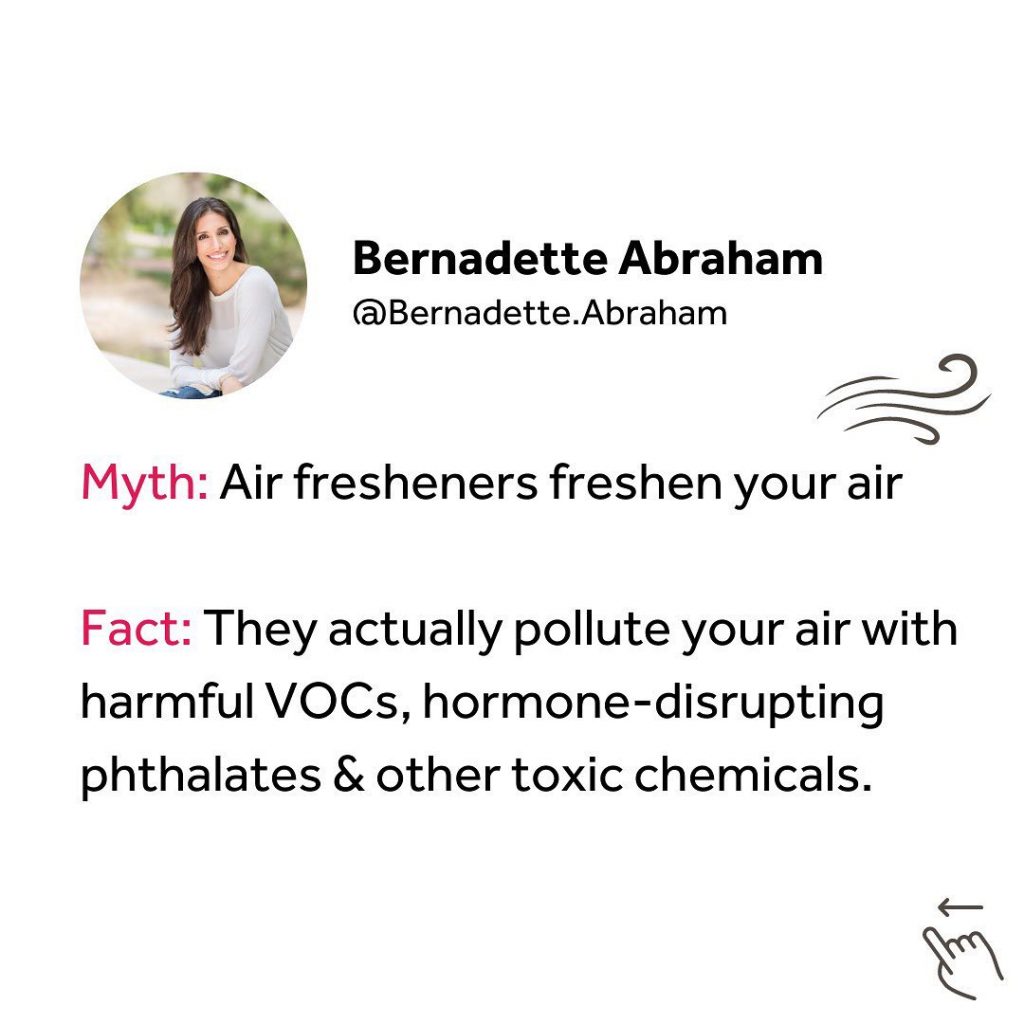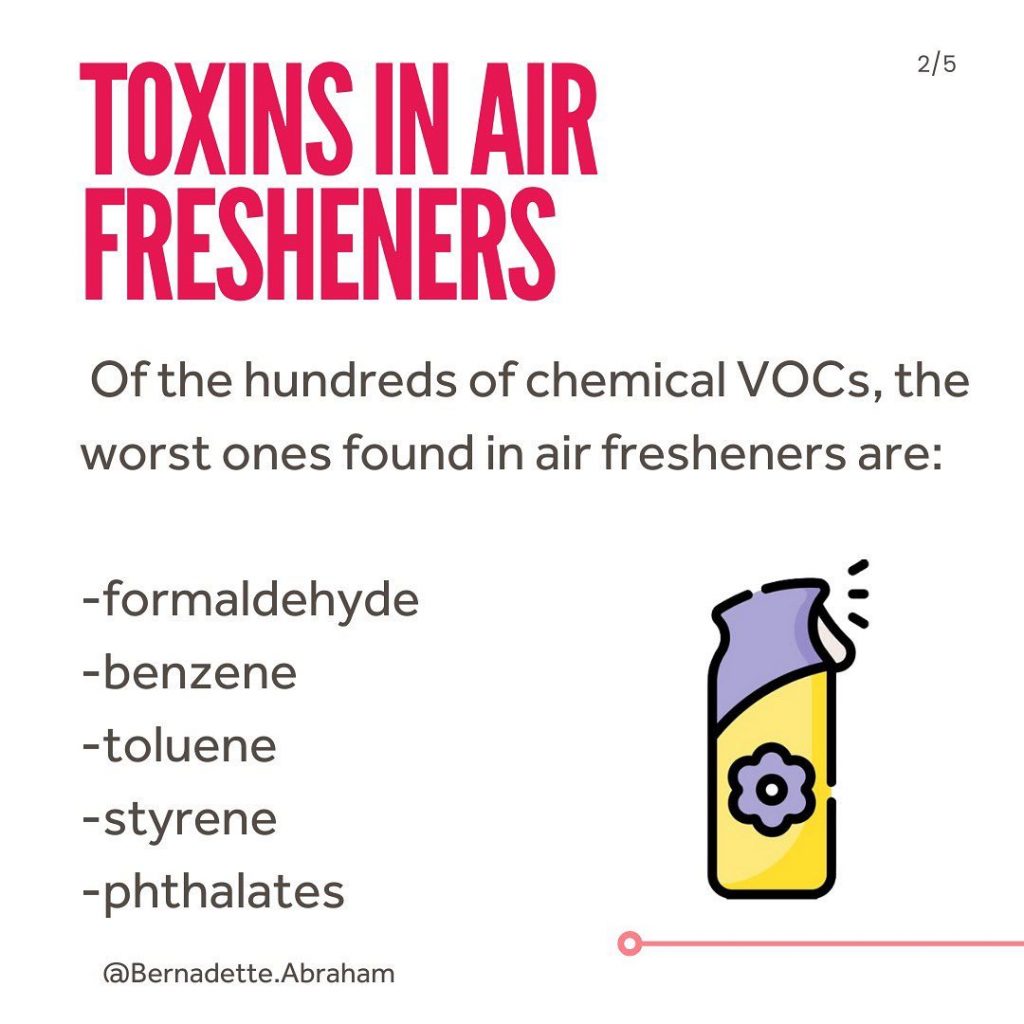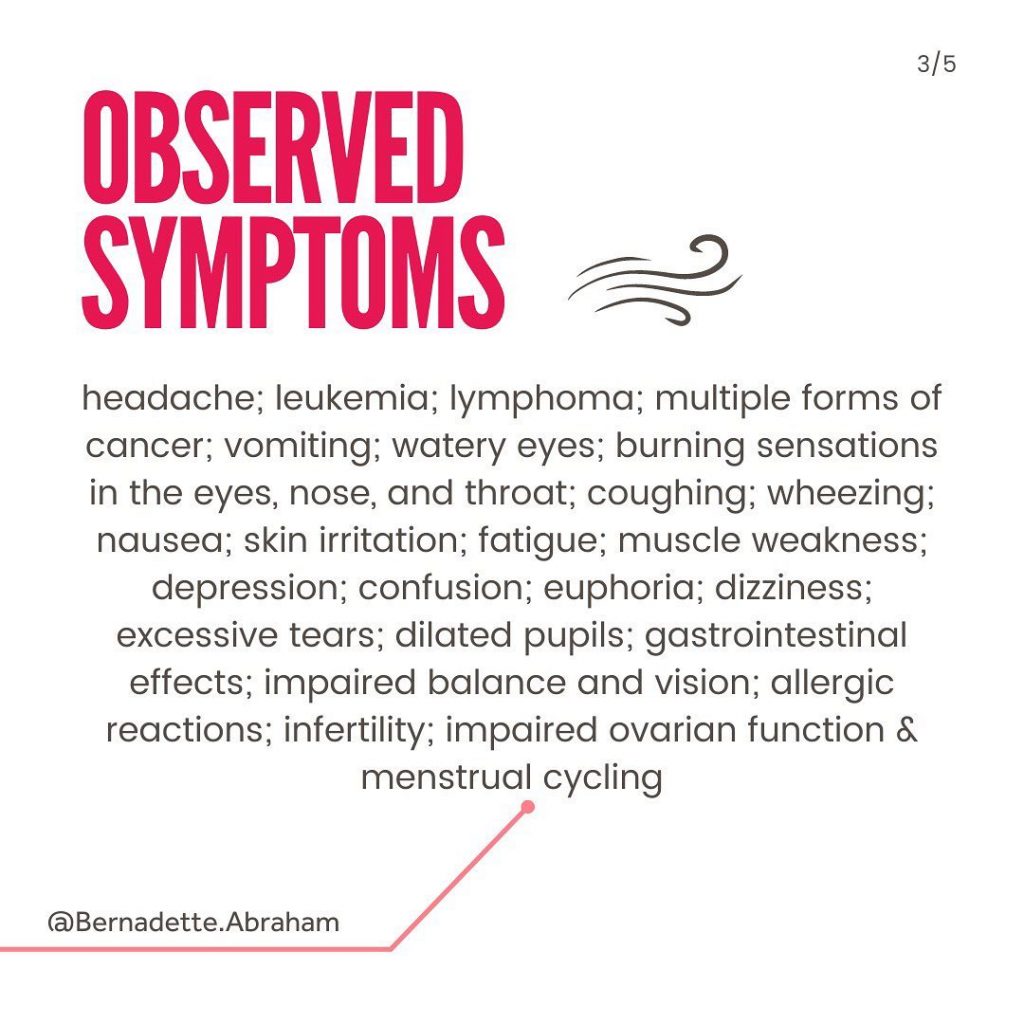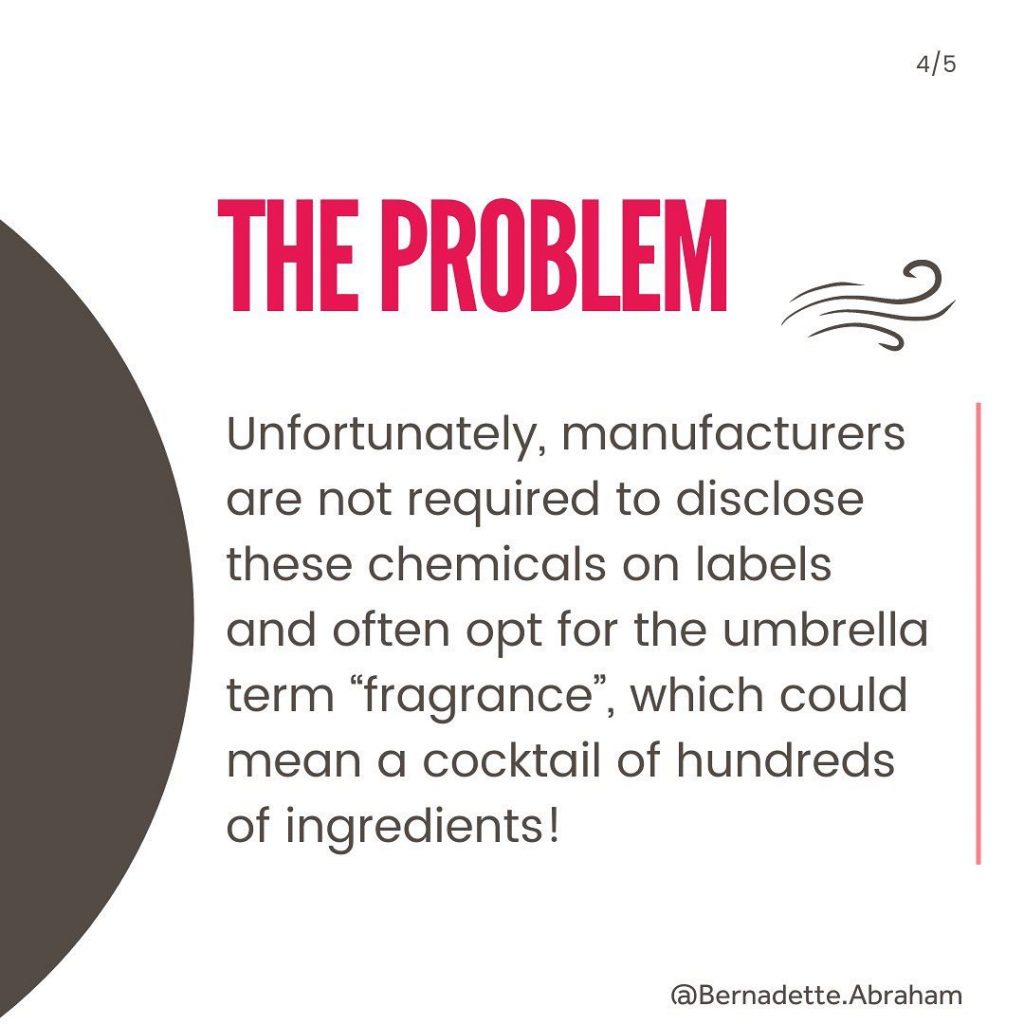When I polled my audience in my Instagram stories, the majority knew that air fresheners emit harmful chemicals.
In fact, some messaged me saying how awful they make them feel from immediate migraines to ending up in the ER with an IV drip!
“Freshening” products such as sprays, powders, plug-ins, diffusers, sachets, potpourri, scented candles, and car vent clips have all been found to contain VOCs (volatile organic compounds), chemical gasses which the EPA states “some can have short- and longer-term adverse health effects”.

Of the hundreds of chemical VOCs, the worst ones found in air fresheners are:
⚠️ 𝗳𝗼𝗿𝗺𝗮𝗹𝗱𝗲𝗵𝘆𝗱𝗲, 𝗯𝗲𝗻𝘇𝗲𝗻𝗲, 𝘁𝗼𝗹𝘂𝗲𝗻𝗲, 𝘀𝘁𝘆𝗿𝗲𝗻𝗲, 𝗮𝗻𝗱 𝗽𝗵𝘁𝗵𝗮𝗹𝗮𝘁𝗲𝘀
Unfortunately, manufacturers are NOT required to disclose these chemicals on labels and often opt for the umbrella term “𝗳𝗿𝗮𝗴𝗿𝗮𝗻𝗰𝗲”, which could mean a cocktail of hundreds of ingredients!
❌Formaldehyde is a known carcinogen
❌Benzene is also a known carcinogen, has been linked to genetic mutations (genotoxic) & has reproductive and developmental effects
❌Styrene affects the central nervous system, has neurological effects and also increases risk of cytogenetic effects long term
❌Phthalates are linked to changes in hormone levels, poor semen quality, birth defects and reproductive harm. And the Di(2-ethylhexyl) phthalate found in air fresheners, is “reasonably anticipated to be a human carcinogen,” according to the National Institutes of Health (NIH).
Below is the collective list of symptoms linked to these top 5 toxins in the literature!! (see the 20+ references below)



Unfortunately, air fresheners are used in schools, hospitals/clinics, taxis/Uber cars, public bathrooms, malls, etc. 😩
More awareness about what these air “fresheners” are really made of is needed!
Please feel free to share this information to help spread the word.
If you have any comments or questions, please feel free to leave them below.
References:
https://www.cancer.gov/about-cancer/causes-prevention/risk/substances/formaldehyde/formaldehyde-fact-sheet
http://www.euro.who.int/__data/assets/pdf_file/0014/123062/AQG2ndEd_5_8Formaldehyde.pdf
EPA Toxicological Review of Benzene. (CAS No. 71-43-2). In Support of Summary Information on the Integrated Risk Information System (IRIS). Sept 1998. U.S. Environmental Protection Agency, Washington DC
https://emergency.cdc.gov/agent/benzene/basics/facts.asp
https://www.ncbi.nlm.nih.gov/pubmed/12812022
https://emedicine.medscape.com/article/818939-overview
https://www.cdc.gov/niosh/npg/npgd0619.html
https://www.epa.gov/sites/production/files/2014-03/documents/toluene_toxicology_review_0118tr_3v.pdf
https://www.ncbi.nlm.nih.gov/pubmed/11341554
https://www.ncbi.nlm.nih.gov/pmc/articles/PMC1039329/
https://www.ncbi.nlm.nih.gov/books/NBK326612/
https://www.epa.gov/sites/production/files/2016-09/documents/styrene.pdf
https://www.osha.gov/SLTC/styrene/hazards.html
https://www.ncbi.nlm.nih.gov/pmc/articles/PMC1128224/pdf/oenvmed00065-0032.pdf
https://www.nrdc.org/sites/default/files/airfresheners.pdf
https://www.fda.gov/Cosmetics/ProductsIngredients/Ingredients/ucm128250.htm
The impact of endocrine disrupters on the female reproductive system. Nicolopoulou-Stamati P, Pitsos MA. Hum Reprod Update. 2001 May-Jun; 7(3):323-30.

Leave a Reply